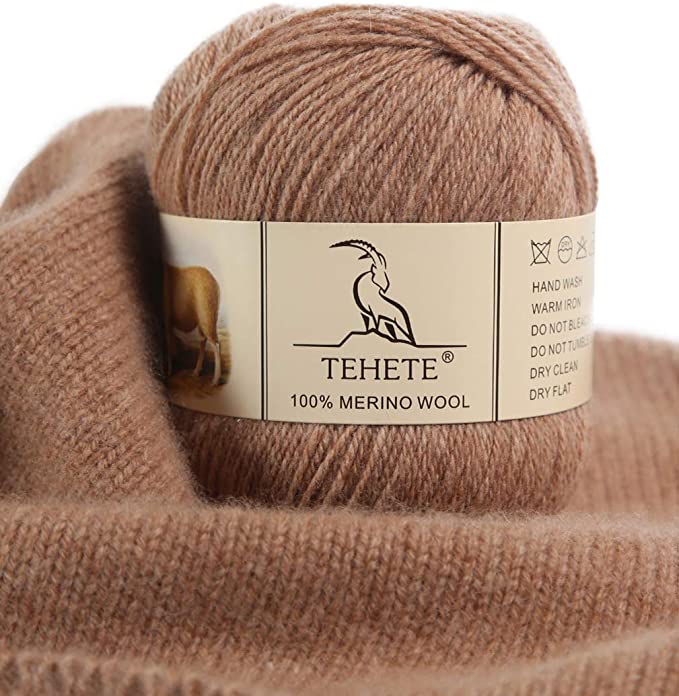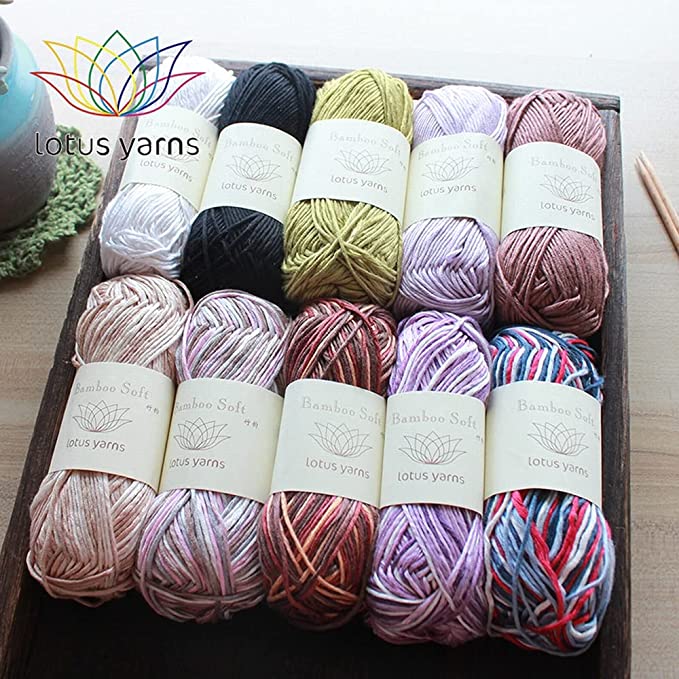When you’re knitting, crocheting, or weaving, it can be difficult to know what kind of yarn is best for the project you want to make. The internet is full of different options and it can be hard to tell which one will work well with your project. Luckily for beginners and experienced crafters alike, some simple guidelines can help you choose the perfect sustainable yarn from among all those choices!
What is Sustainable Yarn?
Sustainable yarn comes from recycled materials. It also uses natural fibres, such as wool or cotton. And it’s durable, so it won’t fall apart after you’ve worn your sweater once or twice. It’s sustainable: made in a way that doesn’t harm the environment or animals.
Why Should You Care?
If you’re new to the world of sustainable yarn, it can seem like a daunting and complicated endeavour. This guide is designed to give you a simple overview of what goes into making a garment that uses sustainably sourced materials.
Let’s start with the basics: Why should you care about sustainable wool? For starters, there are environmental benefits. Sustainable yarn uses less water than traditional animal-based fibres and requires fewer resources—including fewer chemicals and insecticides—to grow its plants. So by putting durable items in your closet made from natural fabrics like cotton or hemp instead of synthetics, you can help reduce your carbon footprint while also reducing pollution in general (and saving money!).
How to choose the right kind of yarn for your projects?
When choosing a type of yarn for your project, there are many factors to consider. The most important thing is to determine the weight of the yarn. This number will tell you how heavy or light it will be, and this will help you determine what kind of stitches to use. It may also indicate how large or small a needle you should choose.
The gauge refers to how many stitches per inch (st/in) your knitting pattern requires, which should match up with what is recommended for things like tension and stitch widths not to become too loose or tight as they’re worked. If they do end up being too loose then it’s likely that holes will appear throughout where strands don’t connect properly. If they’re too tight then your item might end up being unwearable!
6 Sustainable Yarns that you can buy on Amazon
TEHETE 100% Merino Wool Yarn
You’ve probably noticed that wool is a very popular choice for sustainable yarns. That’s because it’s soft and warm, but also durable and easy to care for. TEHETE 100% Merino Wool Yarn is no exception. It has these same qualities, plus it’s washable in the machine on a gentle cycle!
This natural brown yarn comes in 5.5 oz/150 g skeins of sport weight (about 100 meters) and comes in several other colours too—including blue, pink, and grey. The best part? This yarn uses 100 per cent merino wool fibres grown sustainably in New Zealand, so you won’t have to worry about harming any animals while making your projects.

La Mia Bamboo Yarn
La Mia Bamboo Yarn is 100% bamboo. This means it has no chemicals or synthetic materials, and it’s completely eco-friendly.
This yarn contains no animal products or heavy metals such as nickel or lead that are harmful to your health if you’re inhaling or ingesting it over time. Bamboo is also a natural antibacterial fibre; you don’t need to worry about washing off any residue or artificial dyes because there are none, to begin with!

Lotus Yarns 100% Bamboo Yarn
Lotus Yarns 100% Bamboo Yarn is a great choice for beginners. It comes from bamboo, which means it’s soft and smooth to the touch. Plus, it comes in a wide range of colours, so you can pick whatever colour you want. Lotus Yarns 100% Bamboo Yarn works great for baby items like blankets and sweaters (for babies), socks and gloves (for toddlers), and shawls and scarves (for adults).

Lion Brand Yarn Just Hemp
Lion Brand Yarn Just Hemp is a 100% organic hemp yarn that’s hand-dyed in Turkey. It comes in a variety of colours, including some variegated options, and it’s suitable for knitting and crocheting.
If you want to learn more about sustainable yarns, check out this guide from the Environmental Protection Agency on what to look for in your next project!

Ecocitex I’M NOT Wool Classic Yarn
This is a 100% wool yarn, with natural dyes. The colours are beautiful and the yarn feels very soft on your hands. This product comes from Italy by Ecocitex, which has been making eco-friendly textiles since 1990. It’s hand wash only and should be put through the delicate cycle when you do so.

TEHETE 100% Cashmere Yarn
TEHETE 100% Cashmere Yarn is an eco-friendly, natural, and sustainable yarn that comes in a variety of shades. It comes from the finest cashmere wool and has no chemicals or dyes. TEHETE also prides itself on being animal friendly, so you can rest assured that no animal derivatives were involved in its production.

Frequently Asked Questions
Sustainable yarn is made from organic fibres. Organic cotton, for example, is grown without pesticides or synthetic fertilizers so the fabric remains free from harmful chemicals. Sustainable wool is typically farmed using sustainable farming practices that protect the animals’ living environment while producing a high-quality product. Bamboo and hemp can also be sustainably farmed without harming the environment or threatening wildlife.
An easy way to tell if a yarn is sustainable is by looking at its label. Several labels indicate a yarn’s level of sustainability, including the Oeko-Tex Standard 100 label, the Sustainable Wool Standard label, and the Organic Content Label. If you’re looking specifically for fair trade certified yarns, look for the Fair Trade Certified logo on your bag of wool or cotton.
If you’re looking for a yarn that’s certified organic, there are three main labels to look for: the Soil Association Organic label, the OEKO-TEX Standard 100 label, and the GOTS (Global Organic Textile Standard) label.
For this article, I’m focusing on American companies (because they tend to be more accessible), but other countries have their certifications as well.
Certified organic means that no chemicals were used during the production or processing of the fibre. If it was grown with pesticides or herbicides, those chemicals had to be washed off before spinning. The fibres must also come from animals who have never been fed antibiotics or hormones—this may also apply to plants grown for dyeing purposes as well.
Conclusion
Now that you know more about sustainable yarn, why it’s so important and where to find it, you can make better choices for your projects. You can also help spread the word by telling people about this resource. We hope this guide helps you find the perfect sustainable yarn for your next project!
Find out other eco-friendly yarn for your next knitting projects!
- Fashion Forward: Women’s Eco Friendly Dresses for Every Season
- Innovative Eco Friendly Materials for Sustainable Product Design
- Transform Your Life with These Eco Friendly Eco Living Tips
- Essential Eco Friendly Green Holiday Tips for a Sustainable Celebration
- Fun and Safe Eco Friendly Biodegradable Beach Toys for Kids


